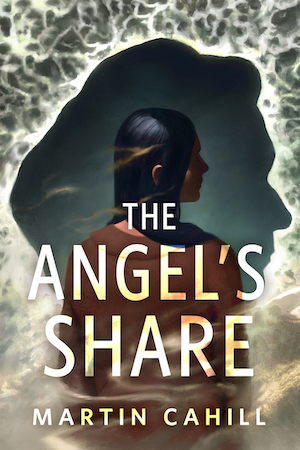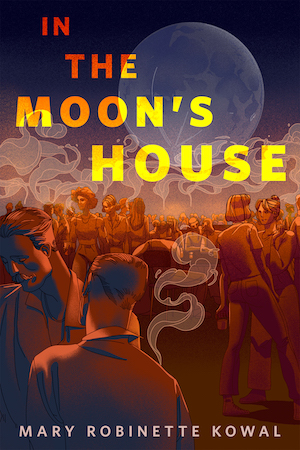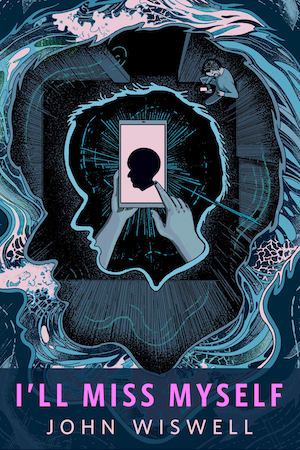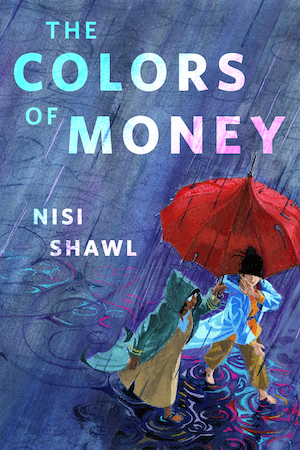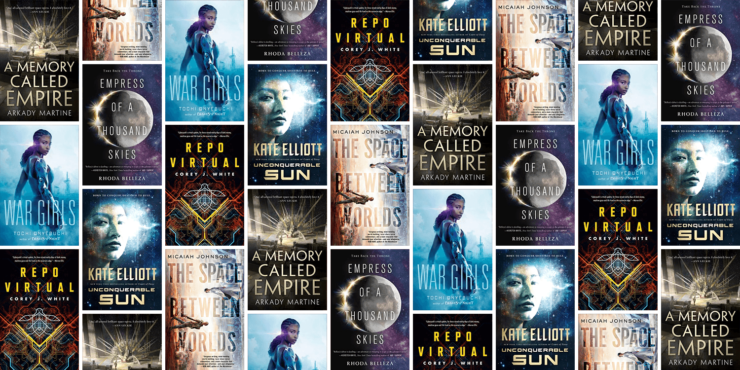The ragtag crew of space junkers glance at each other, psionic weapons hefted and pointed at the door that the Game Master previously described as “impenetrable”, only to see the metal start to glow a bright red. They read the room, and the dice, and quickly realize that the smugglers hinted at two sessions ago have finally caught up to their spaceship, Starskipper.
Roleplaying games ventured outside of the fantasy realm almost as soon as they began. The original publishers of Dungeons and Dragons knew that it was only a matter of time before people would want to start playing out their own space-age story, and in 1976, published the first SciFi RPG, Metamorphosis Alpha. You could say that they were a little ahead of the curve, considering A New Hope was released in ‘77.
While I’m more of a traditional fan of games like free bingo games, games set in space since ‘76 have only gotten better, weirder, and more expansive. With so many new genres muscling in, science fiction games have delved into mecha madness, soft explorations of space and loneliness, and huge galaxy-altering wars. As people become more aware of what science fiction does and looks like, designers have become more experimental, some of them choosing to focus on single moments while others develop intricate systems for massive Gundam fights that occur in between solar systems. Here are a multitude of games, a constellation of new stories, and a hope that one of them helps you find your voice.
A Memory Called Empire by Arkady Martine
Arkady Martine’s staggering debut takes us to the far reaches of space, and this is a story that does not just glance across colonialism, but deeply and meaningfully wrestles with it. The main character fights to be herself in a world intent on literally, taking her and her culture apart. Diving into the nuances of a native language, learning, and what authority means at home or in an independent state, A Memory Called Empire challenges what it means to both admire and despise the dominant culture.
If you love words, and loved the way that their meaning developed and changed in this novel, you’ll want to pick up Dialect, by Thorny Games. It’s an award-winning game where players use a card system to create a culture through language and symbols, written in part by Beth LaPensee, a Native author who has a unique perspective that makes Dialect a perfect (anti)colonial match with Martine’s work. Mix it with War in the Year 3000, by designer Ben Roswell, and judge your warmongering ability based on two things: Cool and Doubt. This rules-lite system focuses on your ability to spin at high speed on the high-stakes battleground of public opinion. With the expansive Dialect and the focused storygaming of War in the Year 3000 you have the perfect groundwork for a system-spanning war on the hearts, minds, and social media feeds of the populace.
War Girls by Tochi Onyebuchi
This is a book that ricochets across a battlefield, never stopping unless it’s trying to make you cry. Full of emotion, mechs, and war, War Girls is action-packed and deeply rooted in Nigerian culture, even in the far, extreme futurism it embodies. While mecha-fiction might be a rare find, mecha games are laid out in the veritable feast that is the Sad Mecha Jam Collection, full of lyrical pieces on the nature of war, mechas, pilots, and legacies. Jams are game design communities that coalesce around a theme or idea, and the Sad Mecha Jam has become almost legendary in the little niche world of indie game design. I cut out a lot of my favorites from the submissions to offer a few really incredible games to compare to War Girls.
One of the best pieces that mix a robust set of rules for action and fighting with deep emotional moments between pilots is Hilt // Blade, by Darren Brokes, perfect for the world of War Girls and Onyebuchi’s grounded sense of the future. If you want something dedicated to the larger world of grime and grease, try Lancer, out of Massif Press, which is full of exceptional worldbuilding and has a veritable ton of specialty Evangelion-style mechs (I mean, just check out the art on The White Witch, which uses a ferrofluid as a manipulative armor source), or Beam Saber, by Austin Ramsay which plays on the dominating politics of war and creates characters out of the mechas themselves.
The Space Between Worlds by Micaiah Johnson
A book all about alternate realities, timelines, and universes, The Space Between Worlds tackles classism, identity, and privilege, all bound up in a sweeping multiverse mythos. Although almost 400 realities have been discovered, travel is limited between them—your counterpart in any universe cannot be alive for you to travel into that world. Cara is only alive in 8 other universes. Torn in between living the good life and finding the truth, Cara has to confront what makes her valuable, and what identity means. It seems too easy to suggest Viditya Voleti’s Space Between Stars, but it’s got to be said. Voleti’s work is about traveling through an unstable universe, bringing in new characters, locations, and motives with every turn taken. Moving on from worldbuilding, Dream Afar by Olivia Montoya (built from the Belonging Outside Belonging structure popularized by Dream Apart/Dream Askew), is about a group of Interdimensional Guardians with their HQ in Anywhere, fighting to save the multiverse from the malevolent Rift. Between both games, you get the isolation, futurism concepts, and a sense of being together through adversity while being apart.
Repo Virtual by Corey J. White
In Neo Songdo, where even the average citizen must travel in between real life and the virtual networks to survive, Julius Dax is a part-time thief with a big problem. He’s stolen the first sentient AI from a mega-billionaire, and the city knows and watches. There’s a ton of cyberpunk games out there, but for my suggestions, I’m focusing on some specific features.
First, there are few systems out there like the Blades in the Dark framework for capers and break-ins, and Hack The Planet is a corebook based on Blades in the Dark (featured in the Fantasy list!) that exemplifies cyberpunk heist tropes and trans-human narratives. Players in Hack the Planet are rebels, glitches in the system that have hacked the nanites and live off-grid, fighting the whole system. Become One by Jamila R. Nedjadi focuses on a mech and pilot, but could easily be played as the all-seeing network and the rogue AI of Repo Virtual. Every cyberpunk story needs a revolution, and although Riley Rethal’s The Riot Starts is about the underworld, what’s a seedy underbelly without a bit of darkness at the edges? Join the revolution, and build the community that will overthrow the world.
Unconquerable Sun by Kate Elliott and Empress of a Thousand Skies by Rhoda Belleza
Alright, I cheated. I couldn’t choose between these two novels, and they both deal with princesses fighting to claim their throne, a ragtag group of fighters who may or may not be helping them, and war that threatens to break out on the edge of the empire. Unconquerable Sun is a gender-bent retelling of the historical mythos of Alexander the Great and Empress of a Thousand Skies is a little more rebel-chic, but both have strong young women fighting for a crown at the core of the conflict. So we have some choices here. We’re starting with an out-of-print game, Hearts Blazing, which is available as a free print-and-play. A leaderless game based around a full season of a space opera television show, the group takes on tropes of the genre by betting on episode plots. It’s fast-paced and exciting, and allows for complete collaboration, as anyone who controls the episode gets to direct the final cliffhanger ending. I’m also going to take a moment and shamelessly rec my own game: Stardrawn, which uses tarot cards and custom spreads to tell the sweeping story of a universe recovering from a galactic war. Playing with the inheritance aspects of both Unconquerable Sun and Empress of a Thousand Skies, Stardrawn gives you the opportunity to go back and forth in time, developing histories and seeding conflicts hundreds of years in the making.
Next, Agon (from Evil Hat), a mythological hero RPG where the fates are literally written in the stars. You have to establish yourself as worthy of the epics of the future, a perfect RPG for princesses bound by fate. The first in a duology of royal loyalty, For The Queen (also from Evil Hat), tells the story of a group of devoted subjects sent to broker between your kingdom and another power. The queen chooses you because she knows that you love her. For more desperate souls, the ultra-indie one-man-studio Genesis of Legend published Palanquin. The game follows a young heir whisked away in the middle of a coup, protected by disgraced sorcerers and ardent mercenaries. The game has few guarantees, but you know that the heir survives because the story you play is told from her perspective, years after the violent uprising that destroyed her family. For the Queen and Palanquin revolve around the queen’s intentions and are perfect companions to both Unconquerable Sun and Empress of a Thousand Skies.
Linda H. Codega is an avid reader, writer, and fan. They specialize in media critique and fandom and they are also a short story author and game designer. Inspired by magical realism, comic books, the silver screen, and social activism, their writing reflects an innate curiosity and a deep caring and investment in media, fandom, and the intersection of social justice and pop culture. Find them on twitter @_linfinn.


